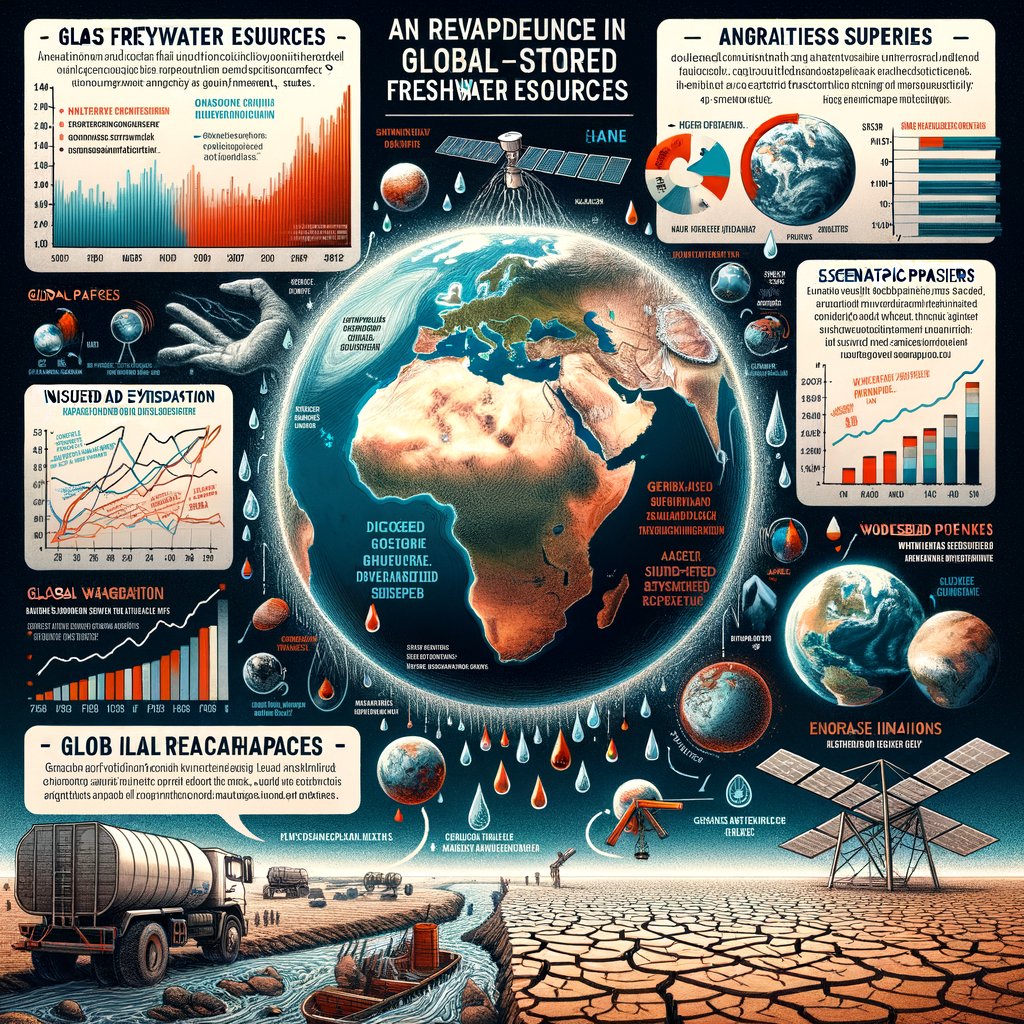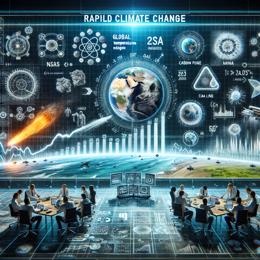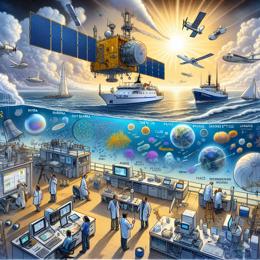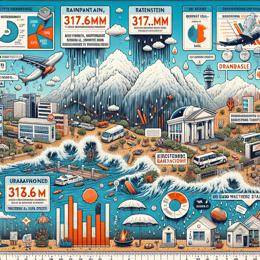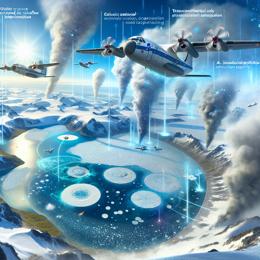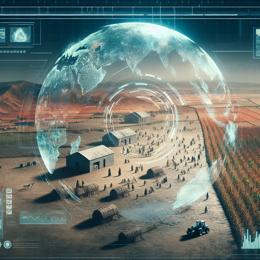Image created by AI
NASA Satellite Data Highlights Threatening Global Freshwater Decline
A recent study drawing on data from NASA and German satellites has alarmed scientists worldwide, exposing an immediate and persistent reduction in global freshwater resources. This study has sparked concerns over the potential for a new norm of scarce water supplies, with far-reaching implications for ecosystems, human health, and global agriculture.
According to the paper published in Surveys in Geophysics, NASA's Gravity Recovery and Climate Experiment (GRACE) satellites, along with their successor, GRACE Follow-On (GRACE-FO), measured an average decline of Earth’s land-stored freshwater by 290 cubic miles between 2015 and 2023 compared to 2002-2014 data. Hydrologist Matthew Rodell at NASA’s Goddard Space Flight Center stated that the magnitude of loss equates to approximately two and a half times the volume of Lake Erie.
The GRACE mission, which ended in 2017, and its ongoing GRACE-FO initiative, monitors changes in gravity caused by water mass movement. These satellites have provided a clearer image of freshwater fluctuations including surface waters and underground aquifers. Findings from the study initiate questions about the long-term effects of drought and groundwater usage, particularly in light of global warming.
This significant downturn in worldwide freshwater started with an extensive drought in Brazil, which preceded consecutive major droughts across the globe. These were partially attributed to a potent El Niño event during 2014-2016 that altered climate patterns, yet an enduring deficit in freshwater has persisted long after typical El Niño influences.
Possible explanations for the persistent decline include the impact of global warming, which heightens atmospheric water retention and leads to intensified periods of precipitation. Michael Bosilovich from NASA Goddard explains that this often results in the water quickly running off into rivers and oceans instead of replenishing groundwater, further inducing extreme drought conditions.
Despite the difficulties in directly attributing this freshwater decline to global warming, the correlation with the nine hottest recorded years and ongoing dry conditions leads researchers to believe that these events are not coincidental. Susanna Werth, a hydrologist at Virginia Tech, cautions that, despite uncertainties, the data indicates a concerning trend towards a drier climate, exacerbated by human-induced climate change.
Earth’s depleting freshwater reservoirs point towards a future that may confront escalated instances of drought, famine, conflicts, worsened poverty, disease from unsafe water, and severe challenges to global food security. This study serves as a clarion call for adaptive measures in water management and conservation efforts to mitigate potential crises.
